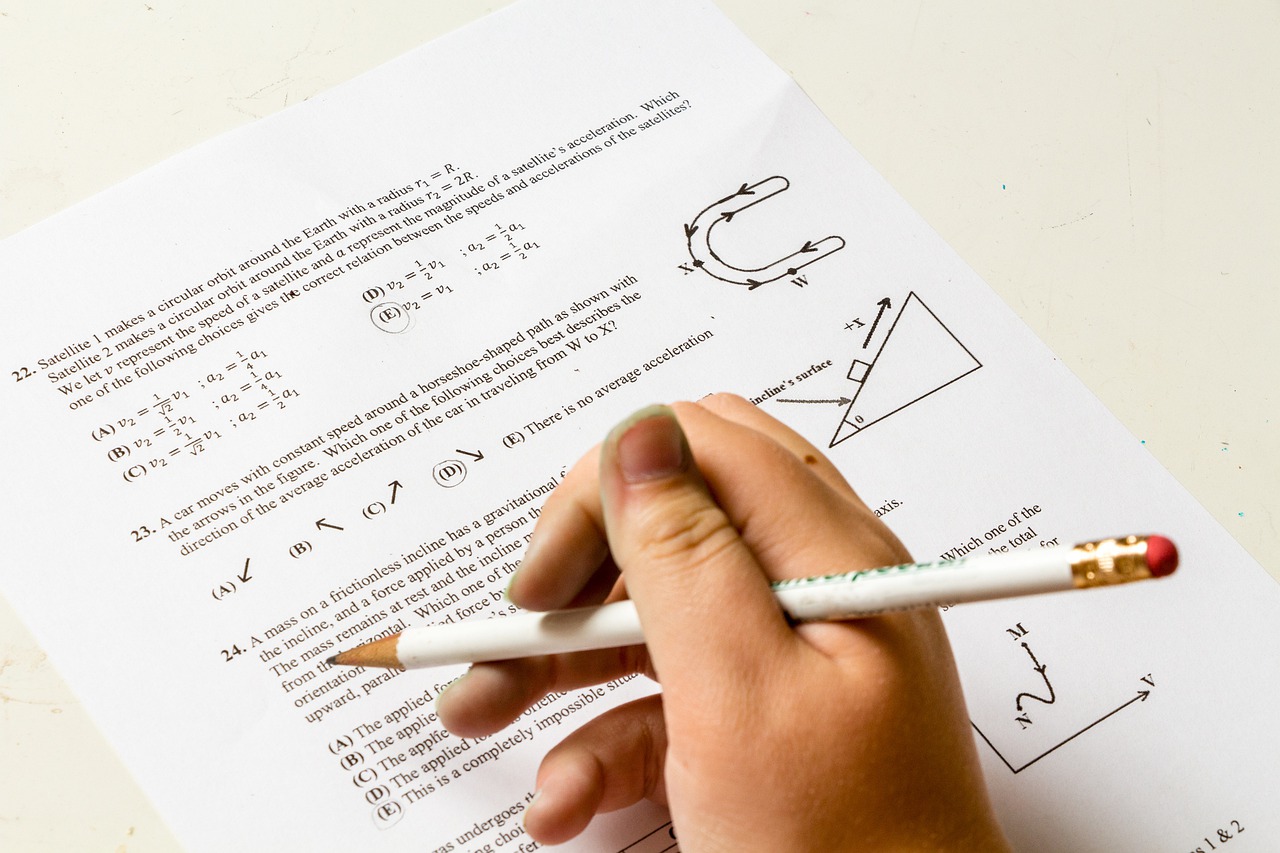
Low Math Scores in the Post-Pandemic Classroom
Low Math Scores in the Post-Pandemic Classroom
Post-pandemic, students have finally returned to the classroom. And parents want to ensure their children are up to grade level with the curriculum. Monitoring your child’s academics isn’t always easy. Parents can’t always know what’s happening in the classroom. So what happens when your child isn’t keeping up? And how has the pandemic impacted learning outcomes in the post-Covid classroom?
1. Math scores have dropped post-pandemic in the U.S.
The National Assessment of Educational Progress (NAEP), better known as The Nation’s Report Card, is the largest national organization that assesses student knowledge in public and private schools in the U.S.
According to the NAEP (National Assessment of Educational Progress), in 2022 math levels for eighth-graders have dropped from 34% from 27% nationwide. Fourth graders also saw a decline in math scores by 5 points on NAEP’s national 500-point scale.
2. Math scores saw significant declines in New Jersey
The NAEP assessment paints a more troubling picture of education in the State of New Jersey where test scores were rated some of the lowest in the U.S. According to the NAEP, New Jersey math scores for eighth-graders dropped by 11 points between 2019 and 2022 which is the lowest recorded math scores since 2003. New Jersey’s declines look devastating when compared with test scores in New York where eighth-grade results fell by 6 points.
3. Students are exhibiting anxiety around math
In addition to the problem of declining test scores, the resulting financial, social, and health stressors from the pandemic worsened the mental health of students. This has directly affected their academic performance and ability to learn.
Pandemic stress also exacerbated pre-existing anxieties surrounding math. As many as 1 in 5 adults in the United States experience severe math anxiety. In households where parents view math with dread, their children are likely to adopt the same mindset.
An EdWeek Research Center Study reveals 67% of U.S. teachers reported that math anxiety is a challenge for their students. These students struggle in the math classroom, and they may also avoid practicing math at home, cultivating a destructive cycle of worsening math skills but also a lack of confidence.
Why does this matter?
Low test scores limit academic progress and hinder a student’s confidence. In simple terms good grades matter because they factor into continuing education. High grades determine what college your child will attend.
Read on to find out how MEK’s programs provide students with resources and guidance to help address lost learning in math!
Our Influence
At MEK Review we use our 25 years of influence to strengthen student test prep and bolster confidence by filling in the learning gaps. We’ve built our organization on the idea that traditional education isn’t enough to excel academically. Supplemental learning is a requirement, not a luxury to make academic milestones a reality. Here are some of our student statistics to back up our claims.
Our Statistics for Grades 4-8
Our grade 4-8 programs emphasize skill-building. This helps students achieve better results in their current courses, future grades, and admissions tests.
MEK’s Learning Circles (MLC) programs help students practice working with key concepts 3 times more often than in traditional school classrooms. This practice results in improved learning comprehension. Therefore, our students can better understand how to apply learned concepts to any problem.
MLC courses cover 75-90% of the school math curriculum and are common core-aligned. This means we cover all the English and Math skills students need to know at their grade level. These factors help students ace their classes and state exams.
MEK Review has services that cater to middle school students looking to apply to Bergen County Academies. Our prestigious BCA Prep program has accounted for 1 in 5 newly admitted BCA Freshmen in the 2022 admissions cycle.
How MEK improves Math Education for Middle Schoolers
To build confidence in math students, teachers and parents need to cooperate in providing new ways to engage with learning material. By promoting student engagement in the classroom, students can develop a deeper understanding of mathematical concepts.
Here are several key ways MEK Learning Circles and tutoring programs can help your child build confidence in math:
1. Small Group Learning and One-on-One Attention
Large class sizes make participating in math class a daunting experience. This goes double for students that suffer from math anxiety. Large classes also fall victim to a lack of teacher time and resources to attend to all students on an individual basis.
MEK offers small group classes and one-on-one tutoring. The benefits of small class sizes include:
More time spent with each student
Smaller classes mean students get more focused sessions. This translates to teachers being more attentive to each student’s personal needs. More attention in the classroom ensures no student is left behind by demanding curriculums.
Our MLC math programs are structured to have small group sizes of 4-8 students. This permits teachers to watch over every student and ensure everyone understands a topic before moving on to the next one.
We also offer 1-on-1 school support tutoring, where our experienced tutors help struggling students gain mastery of concepts they are being taught in school. Tutors craft the student’s learning plan according to what they cover at school so they work on mastering relevant material to succeed in class and on the NJSLAs.
Better teacher-student relationships
As a result of receiving more individualized attention, students can better form relationships with their teachers in a small group setting. When they trust their teachers, students are more likely to ask them for help and gain confidence in their abilities. These relationships will also give students an advantage when they request recommendation letters for future high school admissions.
MLC math teachers hold office hours outside of class for students who need extra support, have questions, or simply want to talk about an assignment. By meeting individually with students, teachers can better understand each student’s academic weaknesses and help them overcome them.
Class participation is less daunting
In large classes, teachers may just call on the student who raised their hand the quickest. With a small group, teachers more easily notice if a student hasn’t been participating and offer them a chance to answer. Encouraging students who take more time to think of the answer or are shyer to participate boosts their confidence.
MEK’s MLC Math class sessions are built around promoting student participation. Reviews of assessments and homework are interactive, where students take turns explaining how to get the right answer for a question.
2. Step-By-Step Approach To Visualize The Math Problem
According to a 2016 Stanford research study, students are better able to grasp mathematical concepts through visual learning. When students write down each step they take to get to an answer, they can more easily keep track of numbers and calculations. In addition, they can more easily trace back their work if they have the wrong answer than if they just jumped to the answer.
In our MLC Math courses, students participate in class by walking their peers through math problems. By explaining the steps they took to reach their final answer, they solidify their understanding of the concepts involved. During lectures and review sessions, teachers draw number lines, shapes, and other diagrams to help students visualize what the question is asking for.
3. Daily Practice
Regular practice is key to developing a solid understanding of mathematical concepts. Even if the student finds a topic familiar or easy, going a week or even just a few days without practicing will erode their skills.
After each class, MLC Math teachers provide students with homework packets to complete before the next class. The packets include cumulative questions and targeted practice problems for specific topics. Not only do students work on mastering one topic, but they also review how to approach topics they learned a week or two ago.
Next Steps
Post-pandemic, it is critical to help students bounce back from the learning disruptions and plummeting test scores to regain their eroded confidence in their math skills. Only when students believe in their ability to solve equations and problems will they be motivated to succeed in math classes.
If you’re looking to help your child build strong study habits and math skills, check out our MEK Learning Circles!
Our MLC program is designed to meet your child at their current academic level in order to guide them toward mastery of key concepts in their current classes.
The first step is to take either our free, virtual MEK Learning Circles Evaluation Test. You’ll receive our detailed score report, a free consultation with the Director of MLC, Ms. Binal Patel, and a personalized plan to help your child meet their goals.
Contact us today to get started!



